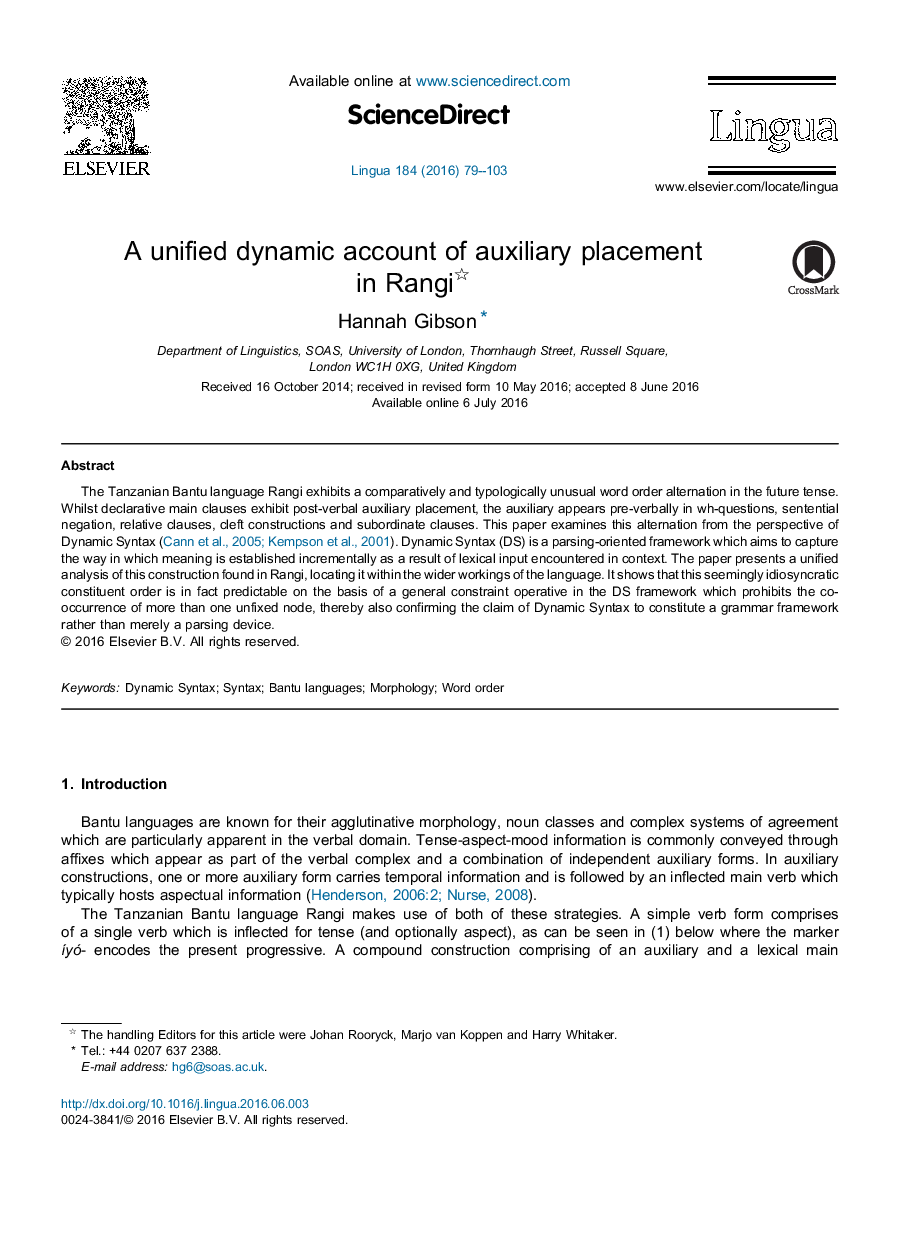| Article ID | Journal | Published Year | Pages | File Type |
|---|---|---|---|---|
| 5043025 | Lingua | 2016 | 25 Pages |
â¢Account of auxiliary placement in Tanzania Bantu language Rangi.â¢Word order alternation accounted for using dynamic incremental parsing approach.â¢Underspecification and update essential to interpretation process.â¢Alternation predictable on basis of universal constraint.â¢Parallels with distinct phenomena in unrelated languages.
The Tanzanian Bantu language Rangi exhibits a comparatively and typologically unusual word order alternation in the future tense. Whilst declarative main clauses exhibit post-verbal auxiliary placement, the auxiliary appears pre-verbally in wh-questions, sentential negation, relative clauses, cleft constructions and subordinate clauses. This paper examines this alternation from the perspective of Dynamic Syntax (Cann et al., 2005; Kempson et al., 2001). Dynamic Syntax (DS) is a parsing-oriented framework which aims to capture the way in which meaning is established incrementally as a result of lexical input encountered in context. The paper presents a unified analysis of this construction found in Rangi, locating it within the wider workings of the language. It shows that this seemingly idiosyncratic constituent order is in fact predictable on the basis of a general constraint operative in the DS framework which prohibits the co-occurrence of more than one unfixed node, thereby also confirming the claim of Dynamic Syntax to constitute a grammar framework rather than merely a parsing device.
